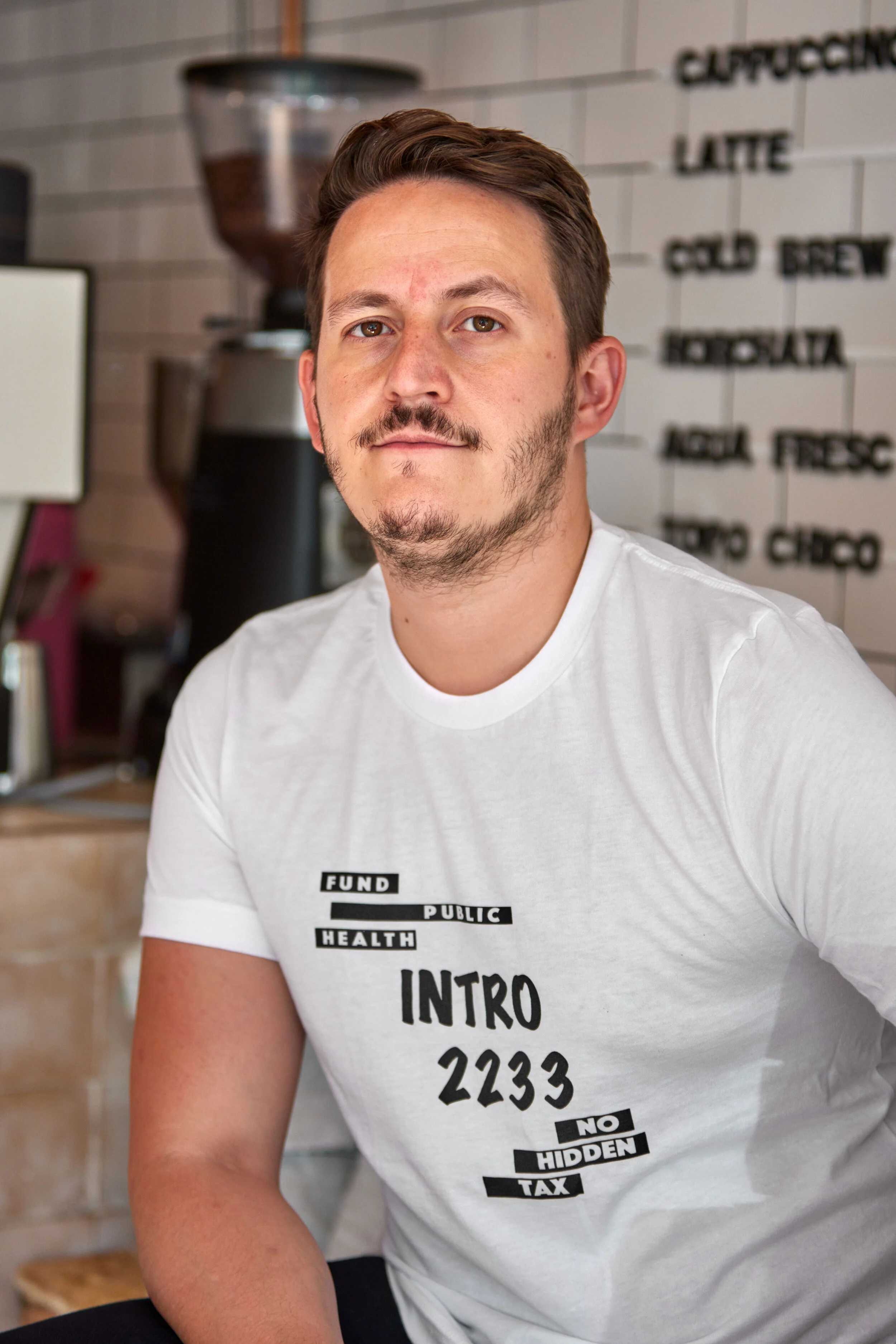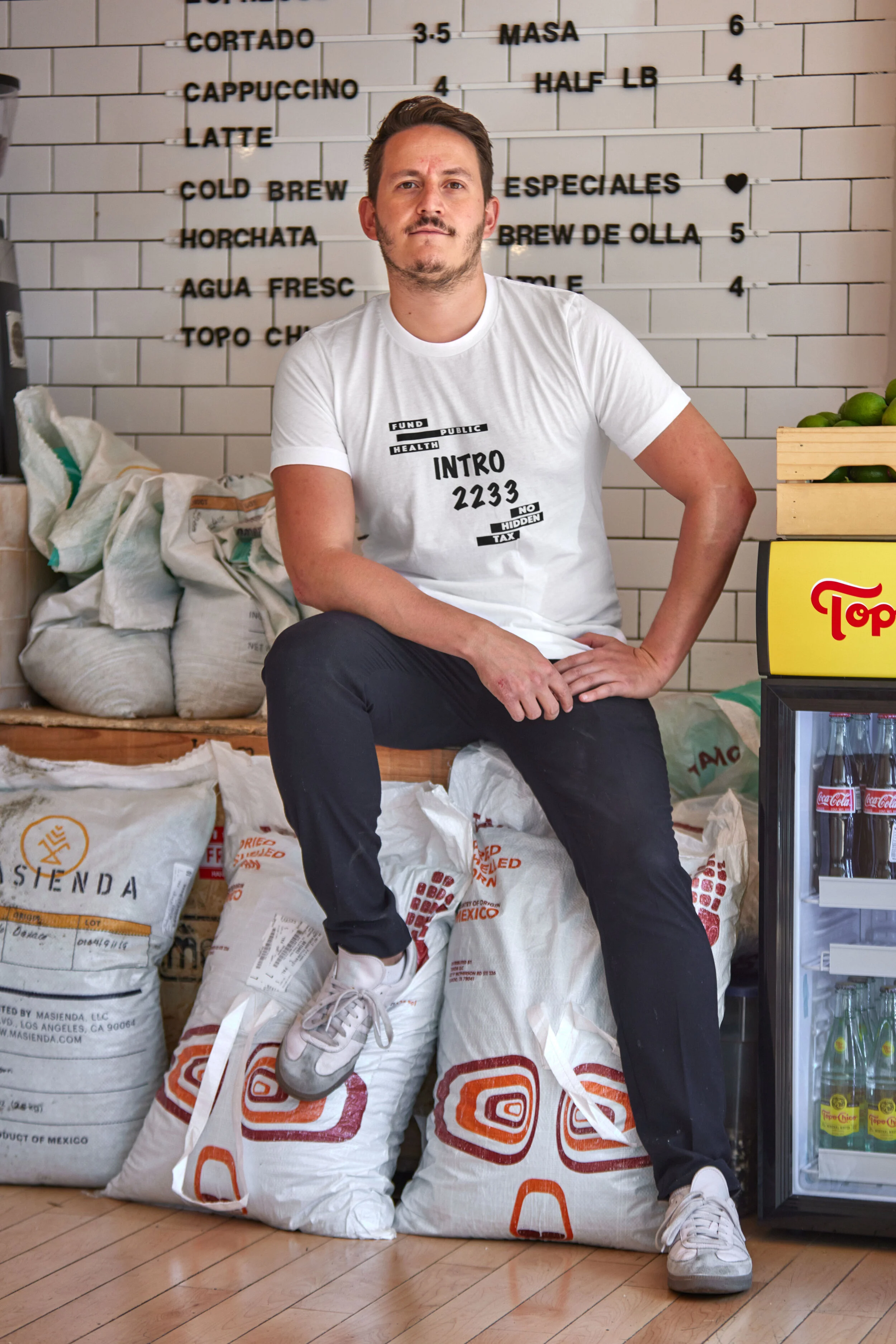Matt Diaz, For All Things Good
Interviewed by Jessie Cacciola / photo: Mathew Andreini
April 2021
There is perhaps no better phrase to sum up the last year than the one traditionally used to toast with mezcal: “para todo mal, y para todo bien, también.” Matt Diaz, along with business partner Carlos Macías, gave us so many good things when they opened For All Things Good last July.
They began work on their space in Bed-Stuy in February but until they could open, Matt focused on perfecting his masa. The menu would feature from-scratch teteles, memeles, tlacoyos, and fresh masa to-go.
You opened during the pandemic. Have you even seen the DOH yet?
Just checking our COVID logs, nothing crazy. We’ve not had to deal with the hectic part of health inspections yet. I’m part of a bunch of email chains so I’ve heard nightmare stories but so far we haven’t had anything too terrible on our end. That said, we applied for our liquor license but we still don’t have one. I feel like all the horror stories have been with SLA and complaining about social distancing when your customers are doing whatever they feel like.
It made no sense to me why it would be struggling businesses’ responsibility to also police people. But for the most part, they didn’t hit Bed-Stuy too hard. They seemed to mostly be looking for money in Williamsburg.
Did you have a relationship with the DOH prior to opening this space?
I’d been working in distribution in the wine and spirits side of things for 10 years, but I worked in restaurants before that. So I do know how tedious and erroneous these inspections can be. Financial retribution, irregardless of the hospitality industry, never really quite made sense to me.
Right. If you can pay off the fine, what’s the point?
I don’t remember the exact quote, but it’s along the lines of, “If the punishment for a crime is a fine, then it’s legal for the rich.”
Yes. Which is why it really comes down to intentionally funding these departments.
Right. There’s no inherent value to this being a for-profit business for the revenue stream for New York. Removing monetary fines from the equation would help us reduce stress, as well as help us have funds to appropriately address whatever concerns got us the fine to begin with. If something isn’t to code in our kitchen, it’s usually going to cost us to fix it. Having us pay a fine on top of that would, if anything, hinder our ability to implement changes.
Bags of Masienda corn, which Diaz uses to make fresh masa on-site: two house staples, Olotillo Amarillo (a yellow varietal) and Conico Azul (blue), plus a rotating purple or red variety. Photo credit: Mathew Andreini
How was this last year for you?
Conflicting regulations, as well as vague regulations, have been a huge part of what has made COVID [compliance] a mess for restaurants. Between unclear guidelines for how to safely hold service both indoor and out, to changing standards for what is required of restaurants to be compliant, to current regulations. People invested thousands of dollars to create outdoor structures, only to have the rules change, frequently, after. Likewise, people spent thousands implementing venting and barriers for indoor dining, with little to no information on the future of indoor dining. It was a big mess. It seemed that there was extremely poor communication between restaurants and regulating bodies.
What type of support would have been most helpful?
For us, as a new restaurant, it would have been helpful to have more grants to be able to implement changes that were necessary to stay open. We had no money to build outdoor seating until this spring. Programs to help businesses adapt to ongoing changes to rules would have helped too. This goes back to communication.
How would you change your relationship with the DOH in normal times?
It would be helpful if the DOH was aimed at helping restaurants maintain standards, rather than going out to punish those who don’t. Inspectors are out to get you, not to help you. There could just as easily be DOH staff assigned to give guidance and recommendations on how to implement changes to things they see as problematic.
__
Matt Diaz is co-owner of For All Things Good (343 Franklin Ave, Brooklyn, NY 11238), a molino & cafe where you can purchase, among other good things, fresh masa.


